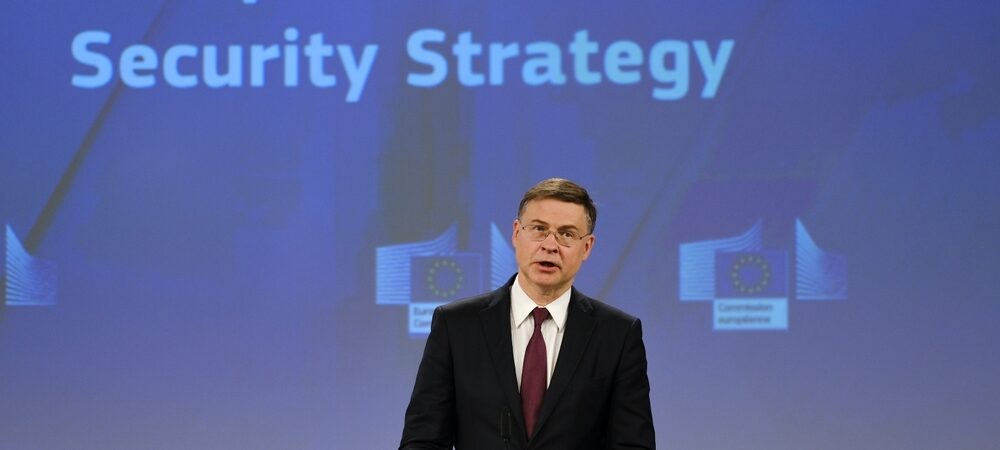Out of fear about its economic security, the European Union is transitioning to a new form of international economic and policy engagement. The Trump administration in the United States, Russia’s invasion of and war on Ukraine, and concerns over China’s increasingly aggressive foreign and economic policies have combined to put a new EU policy into motion. Without the assurance that other countries will continue to follow the rules of a multilateral trading system, the European Union is working through what comes next.
It is taking steps to rebalance its position in the global economy. While seeking to preserve the benefits of interdependence with the rest of the world, the European Union is contemplating policies that would induce change. One change seeks to alter the footprint of global production for certain goods, affecting whom it sources imports from and whom it sells exports to. It wants to decrease certain trade dependencies (which could be weaponized) and increase others (to encourage diversification). A second change is the enactment of new contingent policy instruments intended to allow the European Union to respond more quickly when policymakers in other countries act badly (or to establish a credible threat sufficient to deter them from doing so in the first place).
This paper describes how the European Union is seeking to use trade and industrial policy to achieve its economic security objectives. It identifies some of the economic costs and tradeoffs of using such policies. Because the issues it examines—many of which are noneconomic, for which reasonable estimates of costs and benefits are lacking—are evolving, the paper shies away from normative recommendations. Instead, it explores the political economy of what is emerging and why. The paper focuses on EU efforts to “de-risk” vis-à-vis China especially, given the emphasis EU policymakers now place on doing so.
The paper is organized as follows. Section 2 defines the concept of economic security and the events that led it to play such a sudden and prominent role in modern policy. It provides some early evidence to motivate the new policy interventions but emphasizes that much remains unknown, especially concerning their design.
Section 3 explores a case study that highlights the difficult choices the European Union faces in responding to threats to its economic security. The case study involves the electric vehicle (EV) industry, the European Union’s potential use of trade defense instruments (TDIs) to address unfairly subsidized imports from China, and China’s potential retaliatory response of placing export restrictions on graphite, a critical material needed to manufacture EV batteries. It also identifies unknowns facing policymakers seeking “a clear-eyed picture on what the risks are,” in the words of European Commission President Ursula von der Leyen. The section also explores empirically whether the European Union’s trade interdependence with China may be deepening—despite stated goals to de-risk—in part because of the third-country effects arising from the US– China trade war.
Section 4 introduces the policy instruments the European Union, its member states, and other governments are pursuing to address concerns about their economic security. They include stockpiling and inventory management, investment or production subsidies, various forms of tariffs, export controls, and regulations on foreign investment. This section also highlights proposals for new policy instruments, analyzes the associated tradeoffs, and briefly describes basic World Trade Organization (WTO) rules that might discipline such instruments.
Section 5 turns to the potential for selective international cooperation over the use of such policy instruments. It explores how countries facing common concerns over economic security have been acting in coordinated fashion— implicitly or explicitly—and the difficulties of doing so.
Section 6 concludes with some caveats and lessons from history.
Chad P. Bown is the Reginald Jones Senior Fellow at the Peterson Institute for International Economics.
Trade policy, industrial policy, and the economic security of the European UnionTo read the abstract published by the Peterson Institute for International Economics, click here.
To read the full working paper, click here.

